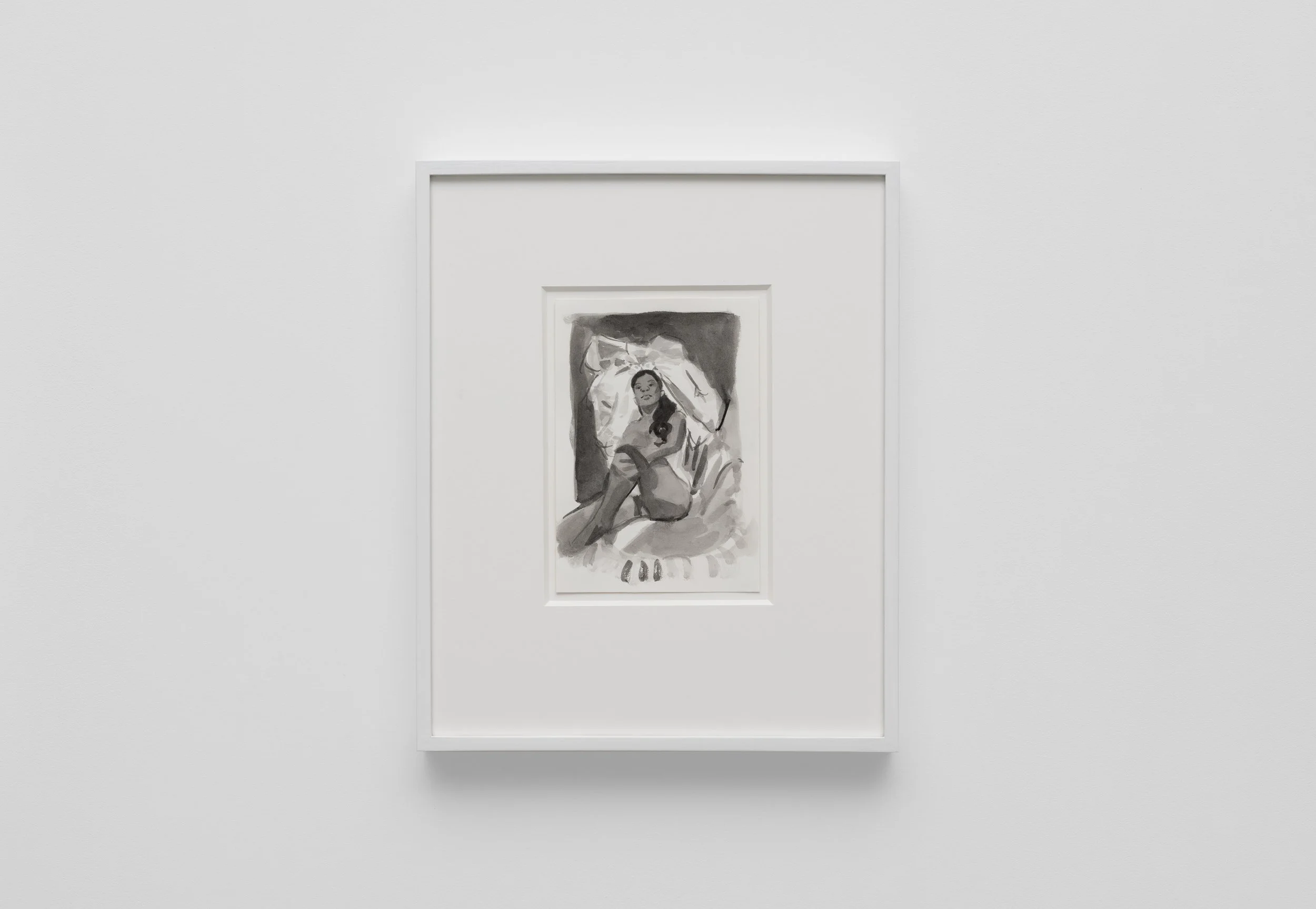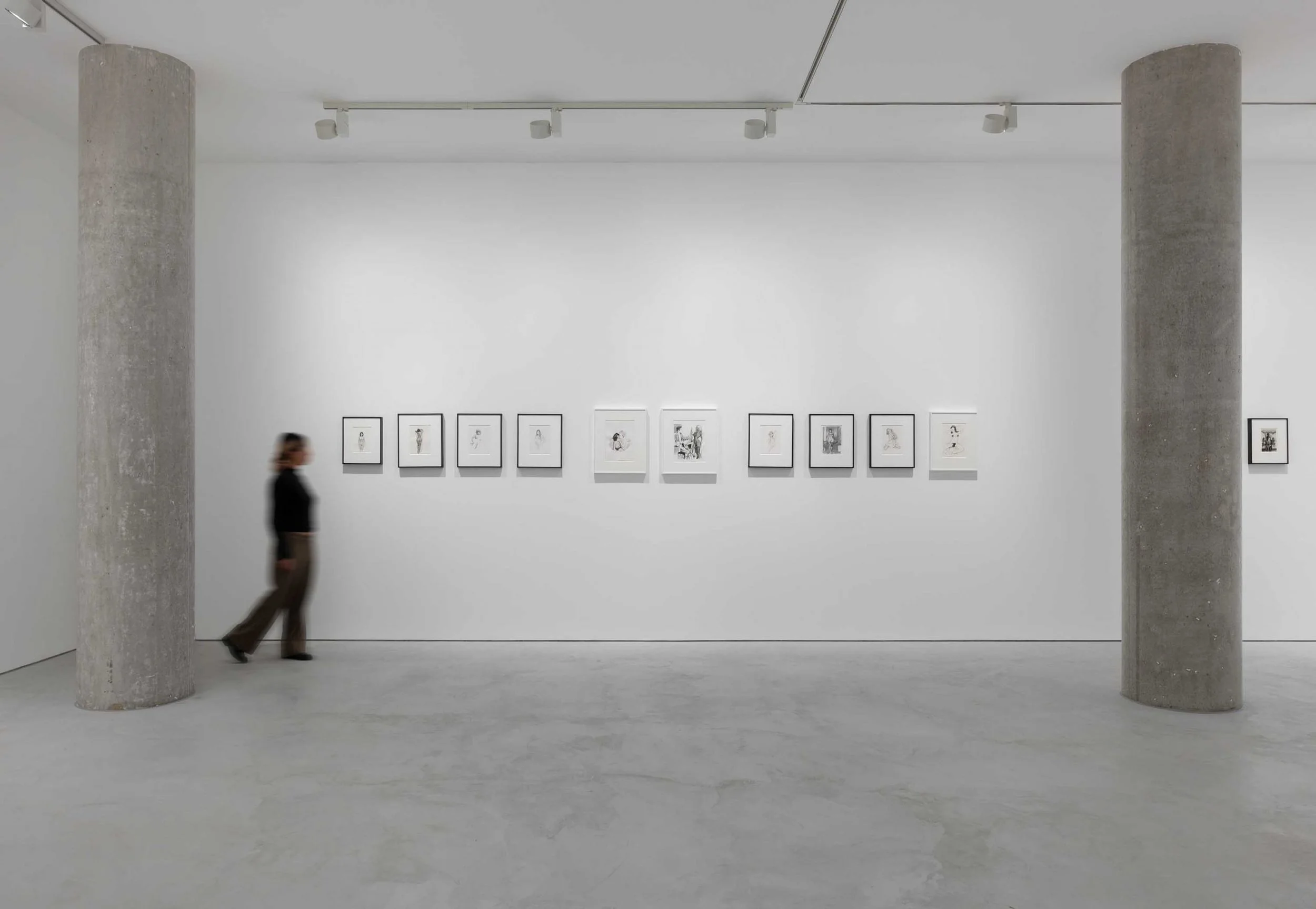Triple Threat
Triple Threat
curated by Hilton Als
Somaya Critchlow
21 November 2024 – 8 February 2025
Maximillian William is delighted to present Triple Threat, an exhibition of drawings by British artist Somaya Critchlow curated by Hilton Als.
Comprising a selection of over 40 new works on paper (2023-2024), Triple Threat is the artist’s first exhibition to focus solely on drawing. Working in graphite pencil, ink with a brush, or traditional Japanese glass dip pen, images are composed and repeated with the delicate immediacy of memoranda, yet retain their own unique sense of place and narrative. The result is a wide-ranging series of drawings that serve as both ends in themselves and living dialogues.
Critchlow’s subjects often reside in worlds where contextual signs are subverted and undermined. Some figures emerge from an almost entropic barrenness, as in Tiny figure, replete or Surprised, while others are adorned with uncanny surroundings and familiar symbols. In Study for The Bride, a bride holds up her veil, not quite lying nor kneeling, but arched backwards; there’s a tenderness in her face undermined by doubt. While in Study of a Bride, the veil billows around a triumphant and defiant figure as she removes a stocking. Critchlow’s use of the bridal veil, whose pre-Christian roots were intended to protect the wearer from malevolent spirits, emphasises how hope is displaced onto the body’s embellishment; and, consequently, how the myth of nudity as a space devoid of meaning can never be realised.
Evident throughout Triple Threat is the artist’s preoccupation with the sketches and prints of Francesco Goya (The Sketchbooks; The Caprices; The Disasters of War). Critchlow has returned to these series again and again over the past year, at times making daily copies. Alongside two studies of Wicked Woman and Woman with a little black boy, Goya’s motifs creep into Critchlow’s own imaginings, such as in Owls, Bats and Cats and In Darkness II; while a general sense of Goya’s influence can be seen in a propensity towards the cruelty and folly that often underlies beauty and power, as well as in the hallucinatory synthesis of psychic and mythic worlds.
When discussing the drawings in Triple Threat, Critchlow has referred to Hogarth as exemplifying the blurred line between portraiture and caricature. If I loved you less shows two figures in an almost Hogarthian melodrama; however, it’s as though the moral of its story has been lost to time. While Bonnet, perhaps a play on Hogarth’s self-portrait The Painter and his Pug, seems to contemplate notions of gravity and self-reflection. These themes are often intermingled with a haunting mood of intimacy, as found in figures inspired by the private photography of architect Carlo Mollino, or with written narratives such as The Canterbury Tales: “The more it burns the more is its desire / To burn up everything that burnt can be”.
As a collaboration between Critchlow and Als, Triple Threat underscores a harmony between these two voices. Als’s own portraiture-in-writing in The Women is a prime example of employing the personal, historical and poetic in order to complicate reductive approaches to Black femininity. Similarly, Critchlow’s subjects refuse to shy away from sensuality as a mode-of-life within which snippets of identity and meaning can be made.
Als reflects on these themes in a new piece of writing for the exhibition, which can be found in an illustrated accompanying publication.
WORKS
PUBLICATION












